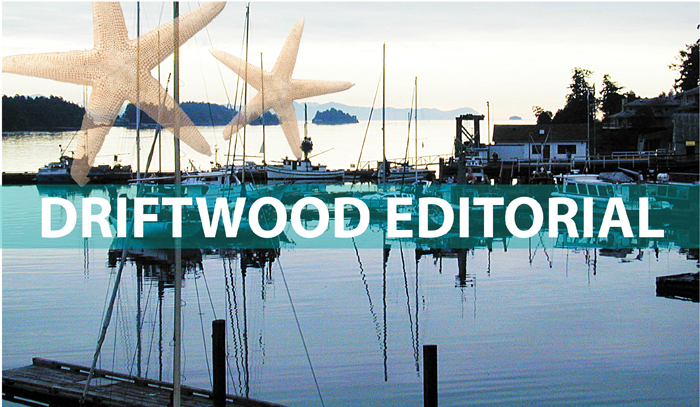One could be forgiven for thinking that islanders are simply ungovernable.
The news continues to tell stories of local governments struggling to act in ways that reflect the values of their communities. And if Salt Spring is unified in any way, it might be in a belief that our governments have no idea what those values are.
How else to explain the surprise officials repeatedly express, facing events that seem as predictable as sunrise? When an advocacy position is confidently taken at one meeting, it will bring a crowd in opposition at the next; when our officials are begged in one moment to enforce a bylaw, they are guaranteed to be chided later for doing so. When they feel they’ve heard that the best course of action is no action against an infraction, they will hear the precise opposite — and with equal passion — just weeks later.
If they don’t react based upon what they hear, they’re out of touch. If they do, they’re submitting to the loudest complainants.
From bylaw enforcement to land-use decisions to housing security and even in designing a public park, there are always multiple opinions on the best way forward. Unfortunately, many officials seem simply to react to each voice they hear, and in succession.
While they must consider public opinion, if our elected officials hope to learn what their community values by quantifying feedback — a notion reflected in every “due to the large amount of comment” justification we hear for decisions — they are doomed to continue the cycle, and deservedly so. Taking the call for more feedback to its logical conclusion, 12,000 letters on each topic would reduce every matter to another election. It sidesteps the duties of office.
Moreover, islanders have consistently shown an unwillingness to “settle” for a majority-rule, zero-sum approach, truly believing they can find solutions that work for all of us.
If an opportunity to build from common ground and transcend reactive governance exists, perhaps it lies in nurturing public buy-in for our longer-range projects, like the official community plan now ready to be revisited. A community’s guiding documents can reflect a more stable shared understanding of its values, of decisions made on what we find important. Building more durable common consent could reduce the reliance on selective application — giving the public some idea of what to expect — and help our officials stop chasing ephemeral public approval.

